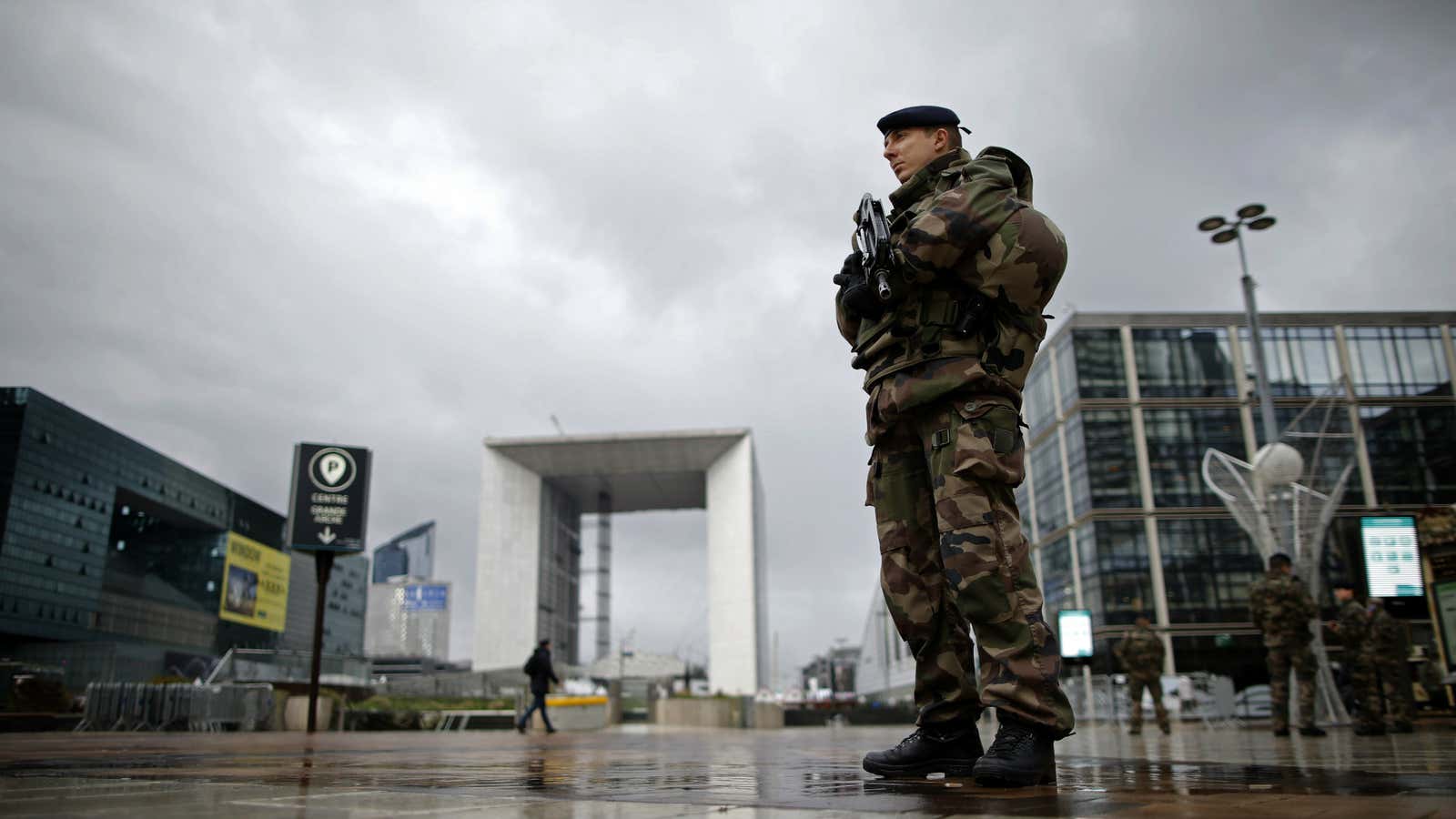The attacks in Paris on Nov. 13 took 130 lives and permanently altered many more. Against this, discussing the financial costs of that day of terror may seem gauche. But as Paris, and France, tries to return to some sense of normalcy, it must address the economic damage of terrorism as well as its human toll.
According to an analysis by the French treasury, reportedly seen by radio station RTL (link in French), the attacks will cost the economy some €2 billion ($2.1 billion), mainly via subdued tourism and consumer spending. When contacted by the newspaper Le Figaro (link in French), the treasury called it a “first estimate” and refused to comment further, saying that a more comprehensive analysis will be released in the coming weeks.
The French economy as a whole is worth some €2.1 trillion, so the estimated cost of the attacks is only about 0.1% of annual GDP. But for an economy that has struggled to post much growth recently—0.3% in the third quarter, after no growth at all in the second—this makes a difference. And the impact on the tourist and retail trade may be outsized, given that it comes in the midst of the crucial Christmas shopping season.
That said, as Quartz recently reported, past experience suggests that the economic effect of terror attacks tends to be short-lived. Indeed, surveys of corporate managers conducted after the attacks suggest as much (pdf). For every hotel or airline that may miss out on business, there is a security or surveillance firm that may gain new contracts.
France had already boosted its military budget earlier this year following the Charlie Hebdo shootings in January. Following the latest attacks, a surge in recruits and intensification of airstrikes on ISIL in Syria is a sign that the defense industry will be even busier in the coming quarters. But whether this sort of spending (and related borrowing) is as productive or job-creating as other uses is still being debated in the case of the US response to the 9/11 attacks.




